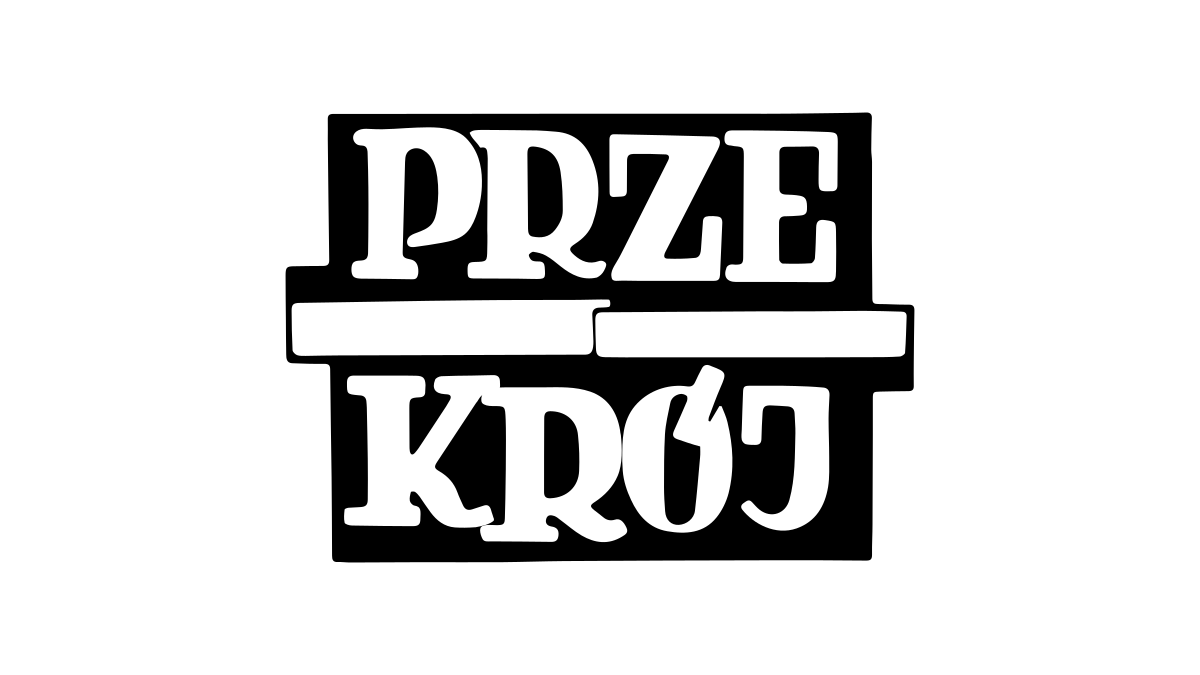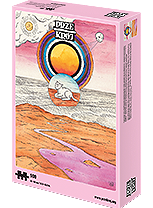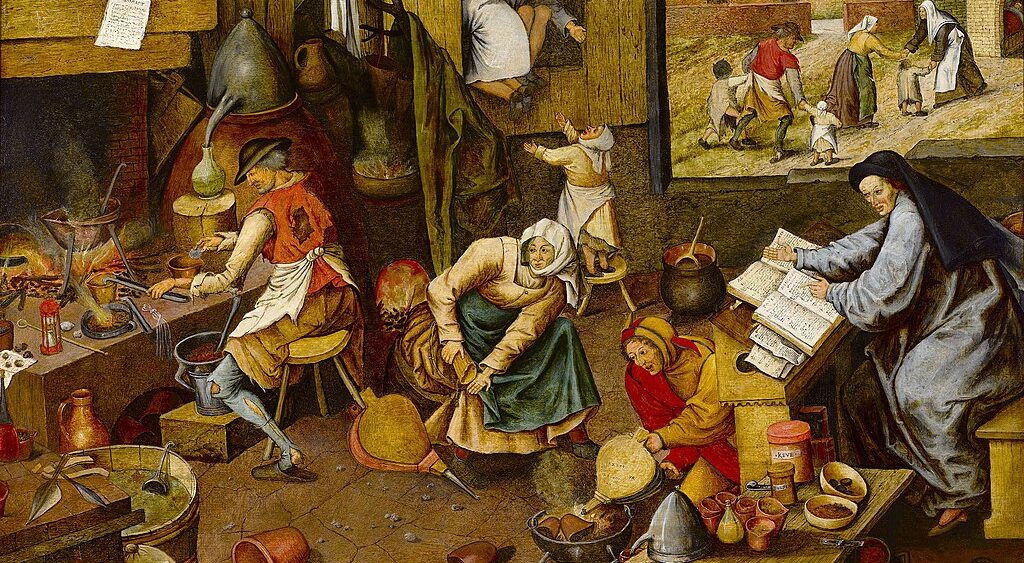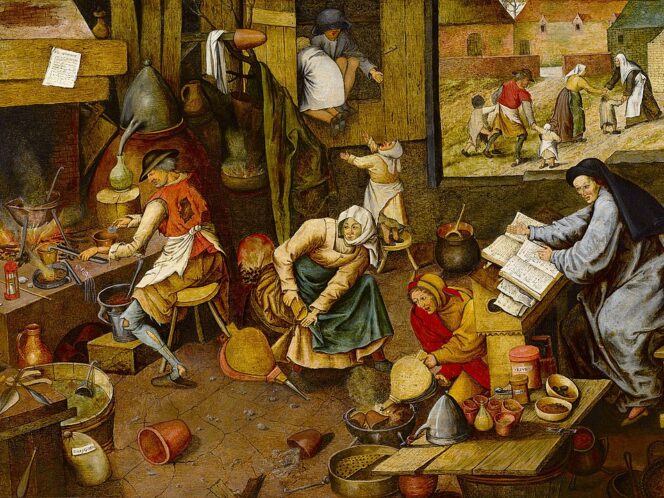
While the alchemists never did manage to discover the elixir of life, science is in their debt for the discovery of oxygen, as well as the saying “only the dose makes the poison.” Their chemical investigations and ethos laid the foundation for modern science.
In his book The Forge and the Crucible, the Romanian philosopher and scholar of religion, Mircea Eliade, notes that both craft and alchemy are based on transforming material. In both cases, the human becomes a demiurge who speeds up time. The blacksmith heats up iron, gives it a new shape, forges it into something. The alchemist in turn changes the properties of a metal to obtain a new substance. The craftsperson and the alchemist here become creators, using fire to transform ores, or as Eliade puts it, the embryos of Mother Earth. The person who learns this art observes closely the transformations that take place in nature, and then tries to replicate them and use them for the student’s own purposes.
Secret Knowledge
Egypt is seen as the cradle of alchemy, and it was from there, thanks in part to the Arabs, that that alchemist ideas traveled in the Middle Ages to other parts of Europe. Though each alchemist had different priorities, we can recognize the most widely held goals they pursued. First and foremost, of course, was creating








